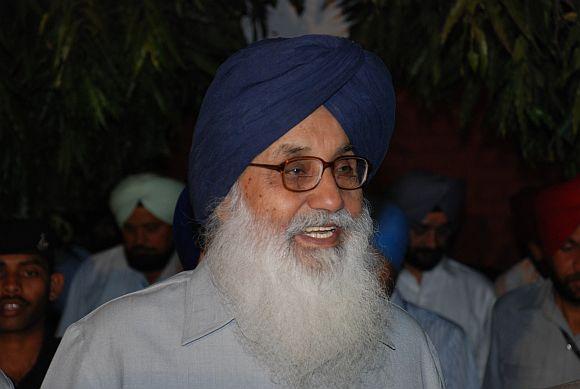
Badal has been a constant in Punjab. Will his party survive the next Assembly elections? Aditi Phadnis examines
At 85, Prakash Singh Badal, chief minister of Punjab, believes in keeping things in the family: three of his nephews are senior Cabinet ministers in the government he heads.
In January 2009, his son Sukhbir became deputy chief minister. It is succession planning without parallel.
This is as it should be. The best known word in Punjabi is pind (village). Everything is pind: whether relationships or business or tragedies or celebrations, you do it with the pind.
It has something to do with the feudal and fabulously wealthy upper class in Punjab thriving on agriculture.
When land in Punjab ran out, they went to cultivate land in Canada and the US. Thus, the Diaspora plays a big part in Punjab's politics.
...
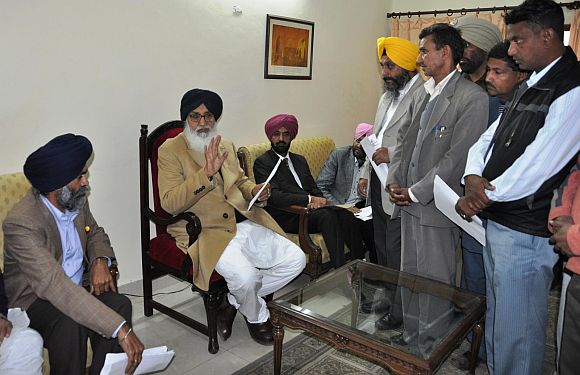
But one thing has been a constant factor in Punjab politics: the Badal family and the Shiromani Akali Dal that they control.
Badal is not the chief minister's name. It is actually the name of his village. In 1920, when Indian and Pakistani Punjab was an undivided province, to safeguard the rights and interests of the Sikhs, Master Tara Singh founded the SAD that based itself on the Sikh Panth (community) and religious tenets.
Although religion and politics derived legitimacy from each other, at various times in history they also fought for ascendancy.
Badal joined the Akali Dal that was united in its burning desire to drive out the British.
...
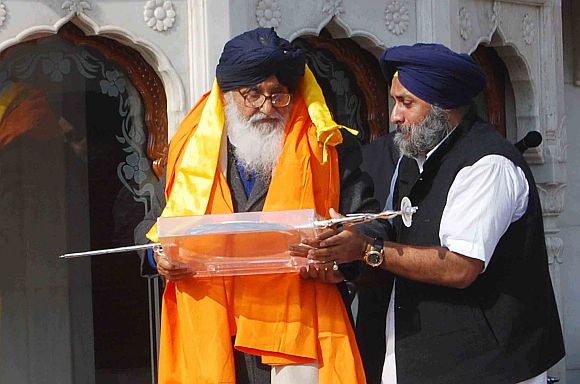
But after they left and the horrors of Partition visited the division of Punjab, the Akali Dal was driven by the absence of an "other" and ran itself into the ground by dividing into squabbling factions. Whose writ should run: the Sikh clergy or the political front of the party? This became the big issue.
In the 1970s, amid unsettled conditions in Pakistan, a plethora of new Sikh organisations with affinities for Pakistan decided the only way to end "discrimination" against the Sikhs in India was to overthrow the collaborators in the panth and throw off the yoke of the Congress.
Pakistan found these young men willing agents. Badal's former colleague and rival, Gurcharan Singh Tohra, fought the battle from the religious arm of the community, the Sikh Gurdwara Prabandhak Committee (SGPC).
What Badal had to do was wrest control of the SGPC from Tohra and purge it of pro-Tohra elements and re-establish the primacy of the SGPC.
...
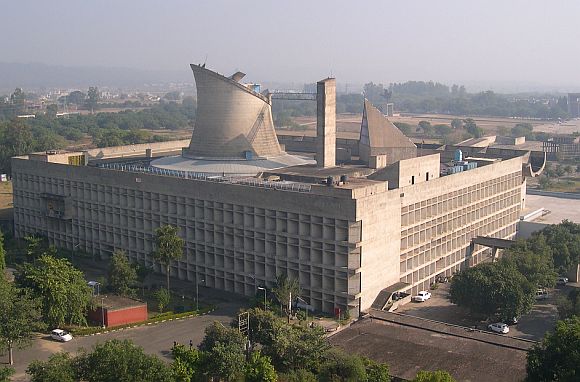
What complicated things was the cult of militancy that overtook the panth. But the movement was snuffed out forever by the assassination of Prime Minister Indira Gandhi in 1984.
Over the years, Badal has craftily managed to uphold the authority of the Akali Dal and considerably weaken the hold of SGPC over the politics.
He has been elected to the Punjab Vidhan Sabha nine times -- thrice as leader of the opposition and is currently serving his fourth term as chief minister.
Badal's politics -- antipathy to the Congress -- makes him a natural ally of the Bharatiya Janata Party. This tends to make the Akali Dal view the world with blinkers. The SAD-BJP alliance was put on trial during the 2008 trust vote sought by the Manmohan Singh government in Parliament over the Indo-US nuclear deal.
....
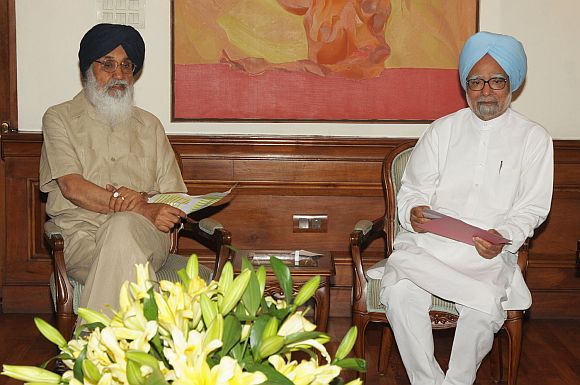
While many party leaders faced the dilemma of voting against India's first Sikh Prime Minister, the grand old Akali leader stood by his faith in friendship with BJP. Sukhbir had gone on record saying Akalis were not against the nuclear deal. How could they be?
Remember all those non-resident Sikhs in the US?
However, barring one member who abstained, the SAD voted against the Manmohan Singh government in Parliament, although the pressure from the US Diaspora was intense.
Similarly, on the issue of foreign direct investment in retail, though left to itself the Akali Dal was inclined to support the government it finally fell in line when BJP President Nitin Gadkari asked the NDA ally to "be realistic".
....
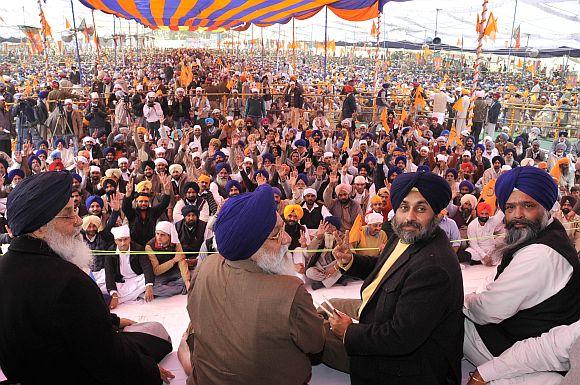
Today, the relationship with the BJP is a division of responsibility: BJP is in charge in towns and the Akali Dal is in charge in the villages.
The politics of the Akali Dal is the politics of the village. In the 2007 assembly elections, when the SAD-BJP alliance came to power, it resumed free power to farmers. Obviously, this was not sustainable, so Punjab State Regulatory Commission announced a power tariff increase of 9.19 per cent in May this year, which was the second-highest jump in the last four years.
However, PSERC chose not to pass on the entire burden of the increase to power consumers despite power utilities, including Punjab State Transmission Corporation Limited, facing a huge revenue gap of Rs 2,651.51 crore.
The state has the highest per capita consumption of power in the country at 972 units, as compared to the national average of 700 units. Its power subsidy bill amounts to Rs 4,257 crore in 2011-12.
Today, these are matters that the BJP in the towns is worried about. But that's just 23 seats. SAD is contesting 94 seats. And Congress politicians say this election will be touch and go.
Click on NEXT to go further...
...